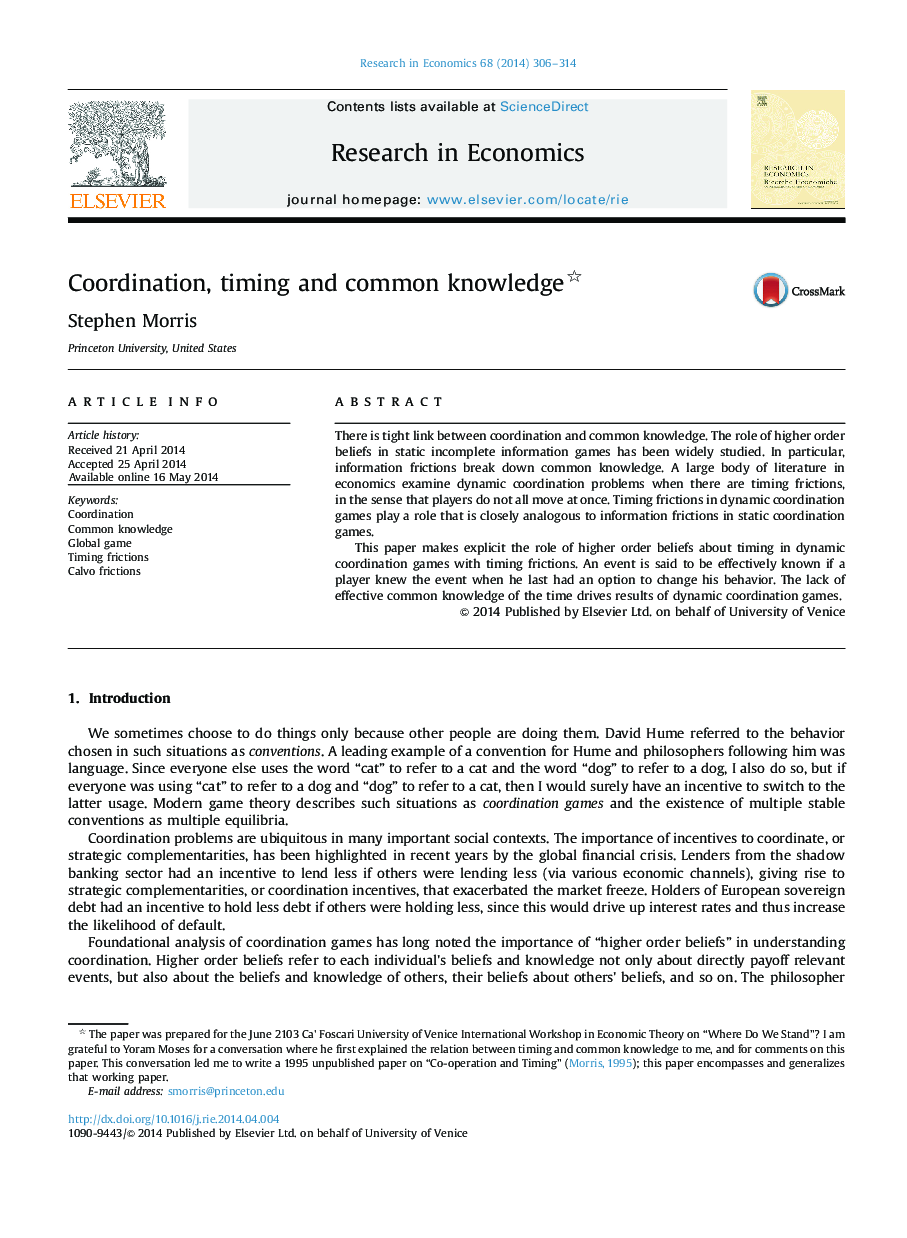| Article ID | Journal | Published Year | Pages | File Type |
|---|---|---|---|---|
| 983376 | Research in Economics | 2014 | 9 Pages |
•Shows the role of timing frictions in resolving multiple equilibria in coordination problems.•Derives higher order belief foundations for timing friction results.•Surveys and relates work on timing frictions and coordination in economics.
There is tight link between coordination and common knowledge. The role of higher order beliefs in static incomplete information games has been widely studied. In particular, information frictions break down common knowledge. A large body of literature in economics examine dynamic coordination problems when there are timing frictions, in the sense that players do not all move at once. Timing frictions in dynamic coordination games play a role that is closely analogous to information frictions in static coordination games.This paper makes explicit the role of higher order beliefs about timing in dynamic coordination games with timing frictions. An event is said to be effectively known if a player knew the event when he last had an option to change his behavior. The lack of effective common knowledge of the time drives results of dynamic coordination games.
